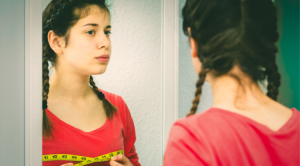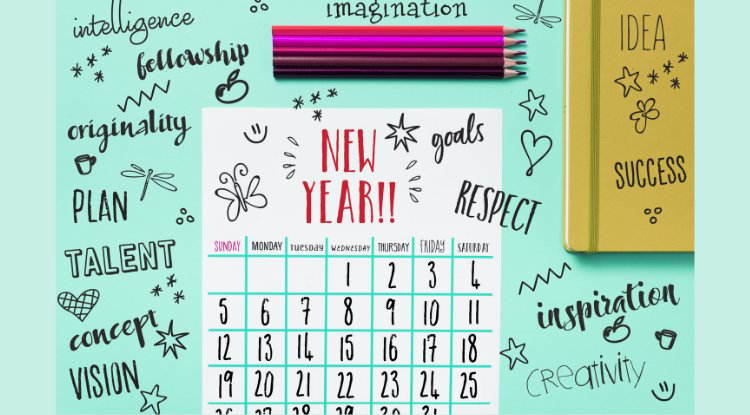Breast pain during periods and other questions answered
Why are my breasts growing so fast? What is their normal size? Why do they hurt during periods? Let’s tackle all these questions and some practical tips for keeping your breast health in check in this week’s Science Lab!

What are breasts?
Breasts are a fascinating part of a woman’s body and are an important part of the reproductive system. As girls grow into women, their bodies go through lots of changes, one of which is the development of breasts. This is a sign that their bodies are starting to become adult bodies.
When girls reach puberty, which is when they start to grow into adults, their breasts begin to grow. This is all thanks to special chemicals in the body called hormones. These hormones are like messengers that tell the body to start changing. In girls, one of the big changes is the growth of breasts.
So, what exactly are breasts? Well, they are made up of special tissues, fat, and glands. The glands inside the breasts are really special because they can make milk. This milk is not for any ordinary reason – it’s produced by the body to feed a baby. Yes, when a woman has a baby, her breasts can produce milk to nourish and feed the newborn. That’s why sometimes breasts are called ‘milk bags’.
Why do they grow at puberty?
Puberty in girls is an exciting time when your body starts preparing for adult life, especially for the ability to have children in the future. This is a big change and happens to everyone. It’s like your body is getting ready for reproduction ( that is to have a baby).
During puberty, a lot of changes happen in your body, and these changes are all about getting it ready for reproduction, which means having babies when you’re an adult. One of these changes is the growth of breasts.
You see, your body starts to produce more of certain chemicals called hormones. Two of the main stars at this party inside your body are hormones called estrogen and progesterone. They work together like a superhero team. Their job? To start the growth of your mammary glands, which are special parts inside your breasts. These glands are super important because they’re the ones that can make milk for a baby.
Estrogen and progesterone also add a bit of extra padding around your breasts, making them grow and change shape. This is all part of your body’s way of gearing up for all the grown-up roles it will play in the future, including potentially becoming a mom!
This transformation usually starts happening between the ages of 8 and 13, but it can be a bit different for everyone. It’s a completely normal and natural part of growing up. So, when you notice these changes in your body, it’s like your body is saying, ‘Hey, welcome to the growing-up club, and get ready for all the amazing things you’ll be able to do in the future!
What are ‘normal’ breasts?
Spoiler alert: there’s no one-size-fits-all definition of ‘normal’ when it comes to breasts. They can be small, large, round, or more elongated – and that’s absolutely okay! What matters most is that your breasts are healthy, and you feel confident in your own skin.
Do you know how snowflakes are all different and unique? Breasts are like that too! Every woman has breasts that are a little bit different from everyone else’s – they can be different sizes or shapes. And that’s normal and okay.
Why do they feel heavy, itchy and painful during periods?
Some of us feel pain in our breasts during our periods, and this happens because of the body’s natural changes. You know those hormones we talked about, like estrogen and progesterone? Well, right before and during your period, these hormones can cause changes in your body.
Imagine these hormones are like messengers telling your breasts to get ready for possible changes, and sometimes, this can make your breasts feel tender or a bit sore. It’s like your breasts are reacting to the body’s signals.
During periods, some people also feel like their breasts are heavier and sometimes even a bit itchy. This happens because of the same hormones, estrogen and progesterone that can cause more blood to flow to your breasts, which makes them feel heavier. Sometimes, they can also make the skin around your breasts a bit more sensitive, which can feel itchy.
It’s all part of how your body changes and reacts during your menstrual cycle. Remember, everyone’s body is a bit different, so not everyone will feel these things the same way. And like always, if something feels uncomfortable or strange, it’s a good idea to talk to a grown-up or a doctor about it.
Tips for breast care:
Let’s get down to the nitty-gritty of keeping your breasts happy:
- Supportive bras: Think of bras as your breasts’ trusty sidekicks. Choose ones that fit well and provide the support your girls deserve, especially during those action-packed days. Comfort is key! For more information on bras and what; ‘s the right age to start wearing them, click here. Don’t know your size? Worry not, we have got you covered here.
- Healthy lifestyle: Give your breasts the VIP treatment with a balanced diet, hydration, and regular exercise. It’s like throwing a wellness party for your entire body, with your fabulous breasts as the guests of honour.
- Regular check-ups: Become your own detective! Get familiar with the look and feel of your breasts. If anything seems out of the ordinary – like unexpected lumps, redness, or unusual pain – consider talking to your parent/elder sibling about it first and they can then assess if you need to see a doctor.
Alright then, understanding and caring for your body, including your fantastic breasts, is all part of the incredible journey of growing up. Embrace the uniqueness of your own body, stay informed about breast health, and don’t hesitate to reach out to a trusted adult if you have any concerns. Your well-being is your superpower, and taking care of yourself now sets the stage for an epic and healthy future.
Do you have any questions for Science Lab? Post them in the comments box below. We will respond to them in our upcoming articles. Please don’t put any personal information .
To learn more about this topic, check out this cool video below :


